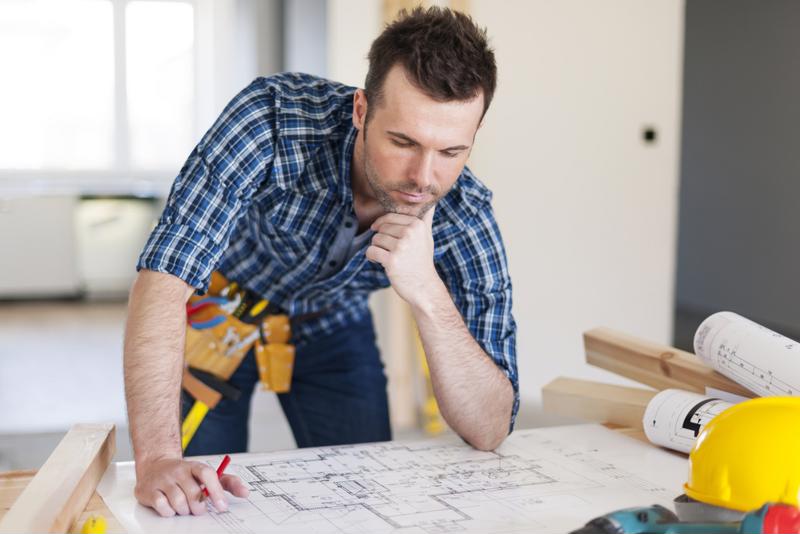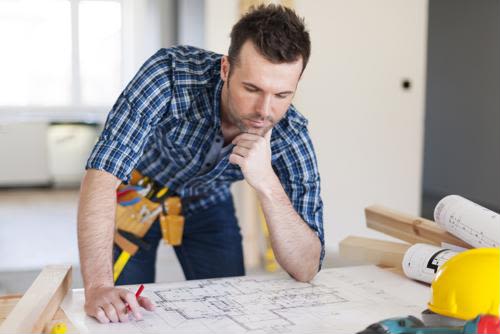- Home
- Resources
- Amerhart Insider Blog
- Construction & Design Trends
- What most people look for in a contractor
What most people look for in a contractor
As a contractor, it can be valuable to consider exactly what clients are looking for when hiring you to complete a home renovation project. HouseLogic, a site operated by the National Association of Realtors, gave its readers seven tips on how to get the best work from their contractors. We've provided a glance into what HouseLogic advises to homeowners, so you can do your best to meet these expectations.
Maintain strong communication
When working in a client-facing role, building a positive rapport is key. Customers expect their contractor to maintain regular communication with them on the progress of the project. Make sure you and your clients agree on the best way to communicate, whether it's in person or over the phone. You should commit to speaking at least once a day; that way, you can make sure the client is content with the way things are going and you can make any changes or alterations before going too far off-track. Also, you might want to use this time to discuss next steps on the project, showing your client the timeline of completion.
By prioritizing communication with your clients, you are not only ensuring that you're doing the high level of work expected of you, but you're also showing your customers that you admire their perspective. This will make all the difference in determining if you're a one-time contractor for them or the professional they call on for all future home renovation projects.
 When you're working with specific blueprints, you may want to alert your client if you need to stray from the plan.
When you're working with specific blueprints, you may want to alert your client if you need to stray from the plan.
Follow basic etiquette
As HouseLogic's list of suggestions advises homeowners to be kind, welcoming hosts and customers, it's essential that you're courteous on the job. If it's your first time working with a new customer, you might want to ask them a few questions to make sure you maintain a positive working relationship. Here are some things you should ask your client on your first day on the job:
- "Which bathroom would you like me to use?" You might want to ask them to show you where the restroom is so you're not wandering around their home searching for it.
- "Where would you like me to park?" Your client might need to come and go from their home while you're on the job. To make sure you're not blocking them in, it might be a good idea to ask them where they'd like you to park while you complete their project.
In addition to asking these questions, you'll also want to make sure you're being a good guest in their home, not overstepping any boundaries. It's very commonplace for clients to offer their contractors a glass of lemonade or a cup of coffee. These items are completely acceptable to take from a client. However, if they offer you a beer, even at the end of your workday, you should respectfully decline. As their home is your workplace for a designated period, it's not appropriate to have a drink with them.
If you're a smoker, you should check with your client to see if there is any place in their yard or driveway that is acceptable for you to have a cigarette. Many clients don't feel comfortable with someone smoking on their property; if this is the case, you might need to wait until lunchtime to drive elsewhere to have a cigarette off the premises.
Don't ask for too much payment upfront
HouseLogic suggests to its readers that they should only pay their contractors for any work that has been completed. It also recommends homeowners to never put down more than 10% upfront. If you ask too much of your clients upfront, they might be wary of working with you. Instead, suggest that your customers make several payments, with the last being made after the project is finished and has been considered satisfactory by the client. Any extra payments you'll need to make for supplies should come out of your company's credit.
Follow the predetermined plan
One surefire way you can disappoint a client is by steering away from the blueprints you both decided on. When it comes to contract work, it's never a good idea to improvise. Even when you have the skills to use the plans as more of a suggestion than a guideline, it's never wise to surprise your clients. Make sure you're following the blueprint to a T, including any measurements and materials you're using.
If you come across a speed bump that interferes with the blueprint's plan, such as a misaligned trim or mismarked measurement, you should notify the client and work together to see how you'll work through it. You shouldn't try to figure out a solution to this on your own, no matter how strong your ideas are, as clients won't want to deal with any surprises.






















